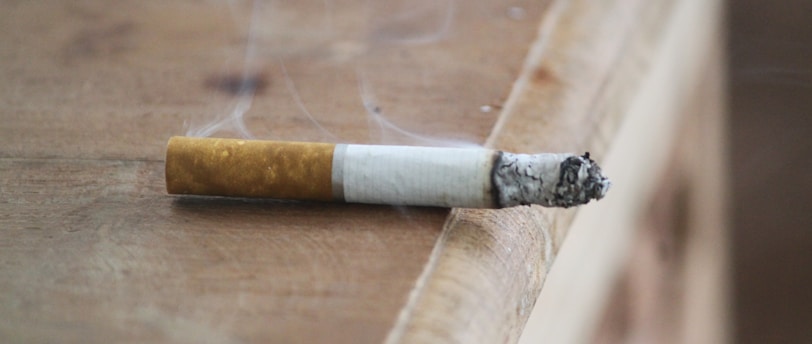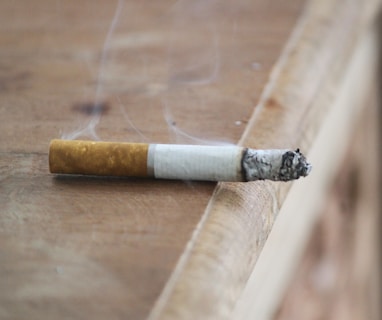What smokers can teach environmentalists about single-use plastic bans
Developing countries struggle to effectively enforce blanket single-use plastic bans due to weak enforcement and a large informal economy. Advocates should focus on persuading property owners to implement bans and encouraging consumer frustration with unsustainable brands.
Joshua Palfreman
3/2/20233 min read


Environmental advocates are having a challenging time banning single-use plastics. The United Nations Environment Programme (UNEP) predicts that as much as 5trn plastic bags are consumed each year and “Peak plastic” is still considered a few decades off. Petrochemical firms recently announced their intentions to offset losses from a weak crude oil market by increasing production of single-use plastics—the resulting amount of plastic entering the aquatic environment is projected to increase by up to 29 million tonnes per year.
When improperly disposed of, single-use plastics can clog waterways, choke marine life and provide a breeding-ground for malaria-carrying mosquitoes. A 2019 study by Humanitarian Open Streets Map in Tanzania, that included hundreds of drone flights and careful spatial analysis, found a direct association between poor single-use plastic management with flooding and water born illness hotspots across Dar es Salaam.
As an increasing number of national, regional and city-led governments join the bandwagon of plastic bag and single-use plastic bans—resulting international patchwork and loopholes must be closely scrutinised. Public administrators often employ a modest, fragmented and somewhat ambivalent political response to regulating single-use plastics—regulating just one part of the plastic-bag lifecycle, such as its manufacture, distribution or disposal or levying consumers at the till. In the developing world, single-use plastic ban efforts have often been compromised by special interest industry groups and political corruption.
As the UN and civil society groups advocate for environmental legislation that addresses the single-use plastic problem—proponents could perhaps gain valuable insights from a more watertight and less contentious legal field; property law and the role it played in the regulation of a very different field—tobacco control.
Smoking bans and other legal approaches to smoking deterrence have typically been based in the rights of property owners and the land they reserve admission to. Employing the sound scientific argument that second hand smoke kills, advocates including the WHO have spearheaded smoking ban policies, in an overall effort to regulate smoking past the point of reasonable consumer convenience. Indoor smoking bans in bars, restaurants, offices (including office parking lots) and increasingly, public parks and beaches, are widely adopted legislative instruments that have been organically adopted by the private sector and popular culture. The laws have been deliberately designed to disrupt and undermine the basic consumer conveniences of smoking in public and social places—awkwardly removing smokers from their social life and consequentially turning popular choice against this self- inflicting addiction.
Single-use plastic bans could follow the same approach. Recognising that national blanket bans are too ambitious and too compromised by special interests and powerful plastic manufacturing groups—advocates could instead seek to undermine the convenience of single use plastic (a key marketing value proposition of beverage companies) and ban its entry or use, through property law.
Legislators can best target establishments most commonly associated with upper income consumers and tourists—the largest generators of single use plastic and packaging waste and also the best positioned to pay more for the environmentally harmful activities they support. Central to the effective implementation of such policy instruments is both the banning of single-use plastic sales on the property and the banning of single-use plastics being brought onto the property by consumers, even where these products were bought off site.
A number of notable examples of such policies already exist, including:
Buckingham Palace, that bans and confiscates plastic straws and bottles that are brought onto Royal estates by visitors.
The National Environment Management Authority Uganda, which bans or confiscates the movement or use of plastics on all properties controlled by the Ministry of Education (e.g. schools), the Civil Aviation Authority (e.g. airports) and national parks.
Rwanda, that sets a strong precedent upon arrival on the country confiscating and banning the import of any single-use plastics (including from tourists) at all ports of entry.
Kenya, which prohibits and confiscates plastic water bottles, disposable plates and cups, cutlery, and straws that are brought into protected areas, national parks, conservation areas or beaches.
International airports authority, Dubai Airports Company which has enforced a self-imposed ban on single-use plastics at both of Dubai’s airports.
Liberty Two Degrees (L2D), which owns some of South Africa’s top shopping malls, that has enforced a 'no plastic shopping bag' policy since January 2020.
Blanket single use plastic bans and ambitious EPR mechanisms are rarely effectively enforced in developing countries, where a grey and informal economy makes up the vast majority of commerce and enforcement capacity is weak and easily compromised by political bureaucracy. Legal and environmental advocates should instead turn their attention towards undermining the consumer convenience that single use plastic manufacturers depend upon to maintain their following. Advocates should seek to persuade large property and land owners to implement a single use plastic ban across their properties/franchises, banning the sale of plastics on their property, and additionally confiscating single-use plastics brought onto their property. Environmentalists are picking legal fights with industry groups who will fight back. They should instead orchestrate consumer frustration with the same industry’s brands, defaming their poor record in investing in more sustainable alternatives and leading consumers iteratively and organically, towards a greener alternative.
Garbonomist © 2023
Garbonomist is your one-stop news and data source for SWM, recycling and ocean plastics updates!
"You've got garbage!"
Subscribe to our newsletter and never miss a story.
